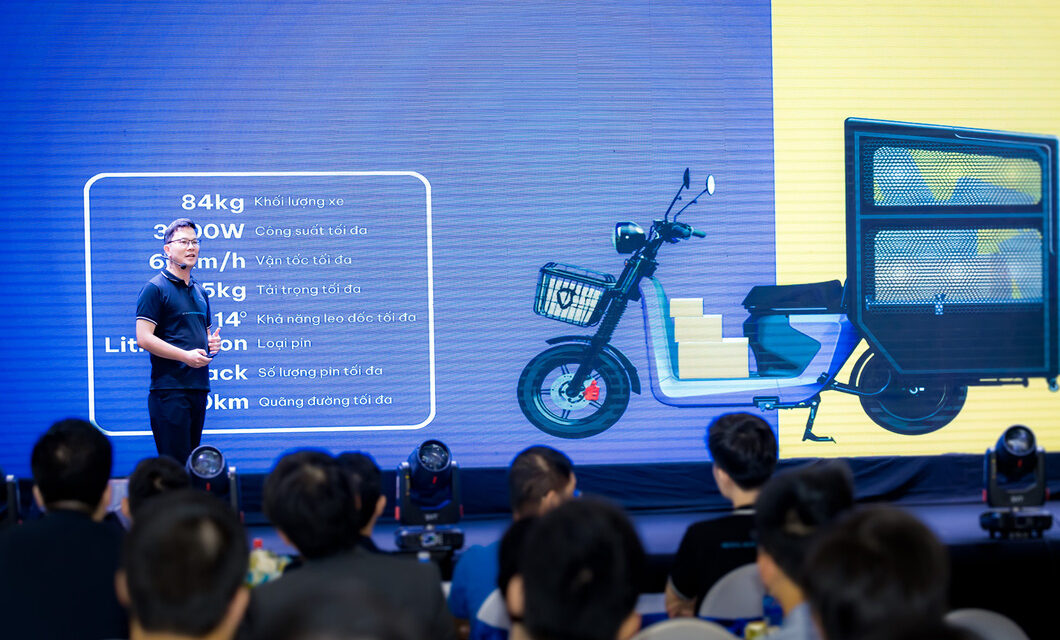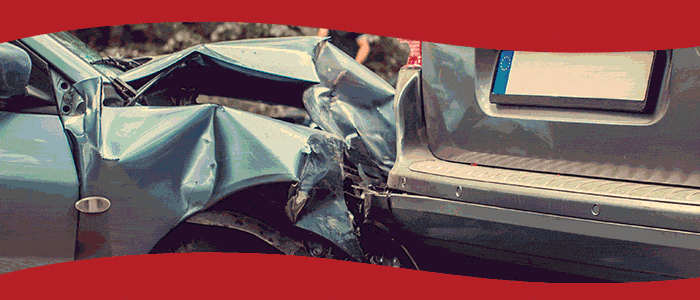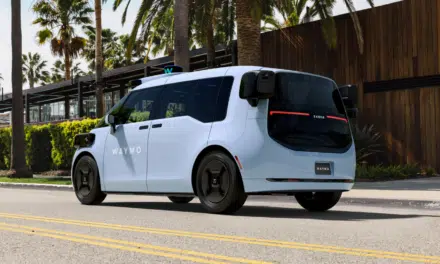Ride-Hailing & Taxi, Buses & DRT ????????
Kolors acquired Urbvan from SWVL for $12M in cash. Kolors and Urbvan are both Mexican players, Kolors focusing on premium intercity travel and Urbvan on B2B commute operations. By the end of 2023 Kolors will launch a new app that will merge both services, gaining on existing Urbvan’s customer base. Kolors has big plans, which include >$100M in annualised revenue and expansion to the US.
As for SWVL – the company is shedding assets to keep afloat, with Urbvan the last subsidiary left from a number of acquisitions originating from its 2022 SPAC. Those included Viapool in Argentina (closed), Volt Lines in Turkey (bought back by founder), Shotl in Spain (bought back by founder), Zeelo in the UK & US (acquisition cancelled) and door2door in Germany (closed). SWVL will now concentrate on its home market Egypt and the Middle East.
Is Gett for sale? An Israeli equity fund by the name of Fortissimo Capital is the prospective buyer, for the sum of $200M. Gett today is EBITDA profitable.
Q2/2023 On-Demand transit analysis + map by Lukas Foljanti. 50 new projects launched in Q2, bringing total projects on record to over 1,300, of which ±870 are active. Most services, 70%, are public transport, but two new use cases, NEMT and University services, are growing. New players in South Korea and Japan are growing the market. Mentionable trend is the use of TNCs, i.e. Uber and Lyft, to supply peak-time demand. As always, a must read report.
Lyft launches Women+ Connect, a feature that “matches women and nonbinary drivers with more women and nonbinary riders”, aiming to get more riders and drivers on the platform. Note that the app allows prioritisation, but if no applicable driver is available, the rider order will go to a man driver. Uber already has a similar feature.
Uber is rumoured to launch a ‘chore’ service, similar to TaskRabbit. This makes sense, as it further utilises driver resources, allowing both greater utilisation (revenue) for Uber and keeps drivers on its platform. No comment from Uber.
Seoul, South Korea: as a result of regulation-originated price increase meant to encourage public transport use, there are fewer rides in the city. Kakao Mobility has shut down two services in the city, Jinhwa Taxi and KM2. Others are suffering as well, with Tada showing an increase in ridership thanks to price cuts.
Kakao to launch in the US and Australia this year and to Hong Kong and Taiwan next year, on the back of its Splyt acquisition. Dubai Taxi Corporation (DTC), a subsidiary of the local transport authority, launched hourly rental of taxis. Grab debuts Web3 services with Circle, allowing riders to open a blockchain wallet to get rewards. Singapore looks at new regulations which could impact local Grab, ComfortDelGro and Ryde. It is not clear what the new regulation will be. Ola restarts bike taxi operation in Bengaluru, goes all electric with its own S1 scooters. InDrive in Gaborone, Botswana. InDrive launched in the city back in 2019, but although it faces competition only from local taxi players, no Uber or Bolt, the company still does not charge driver commission. That could or not change. FlixBus cutting services in Germany as demand shrinks due to Germany’s €49 a month public transport scheme. Bolt and Snap partner on a new augmented reality tool that allows people to see what it would be like without a car. Video here.
In Spain, Freenow and Citroen partner on vehicle electrification. Bolt to invest in Kenya for EV business expansion. Today the company has 40 e-bikes in Kenya, and it aims to add more EVs to its Kenyan fleet. Gojek partners with Selex Motors, a Vietnamese e-bikes and battery-swap company. Selex already works with Grab and Lazada.
Via in Bordeaux, France. The company launched five services with Keolis, focused on employee commuting. Padam expands in Quebec. Another bad DRT experience for Roger French, this time in West Sussex with The Routing Company.
Sharing/renting ????????
Revel, Spain car-subscription (not to be confused with the US EV ride-hailing with an identical name), raises €115M, €15 in equity and the rest in debt. If you wonder what car-subscription is, think leasing. Revel doesn’t buy its own car, meaning that it is likely acting as a middleman, generating digital demand from customers and sourcing supply from more established fleets, such as rental companies.
Onto goes into administration. Onto has 7K vehicles and ARR of £35M, but the fall in residual values of second-hand vehicles and rising interest rates strained working capital, and the squeeze on disposable income didn’t make things easier.
Munich expands car-sharing service, adding 150 car-sharing parking spaces. Share Now seems to be the big winner of this move.
And Augustin Friedel’s update + chart on car-sharing services.
I love meeting new people, learning about new companies and exchanging opinions. Want to get-to-know and talk mobility? Let’s set up a half-hour coffee chat.
Micromobility ????????
Lime wants to go public. The company says it reached adjusted EBITDA profitability of $27 million in H1/2023. On an unadjusted basis, that number is $20.6 million. While the company does not release revenue figures, it has said gross bookings were $250M, 45% increase YoY.
San Diego. Local regulation had shrunk usage by 80% over the course of a year, from 3 million to 600,000 in annual rides figures. This unique regulation limits scooters down to 3 mph (5 kmh) when on sidewalks, not only making them super slow but also unstable. This adds to a theft problem in the city. Spin, Lime and Link left, and only Bird remains. The city is rethinking its regulation.
Rome will cut scooter numbers from 14,500 to 9,000, also reducing the number of rental companies from nine to three. Staying in the city are Bird, Dott, and Lime, each to operate 3,000 scooters.
Malta. Bird and Bolt operate 5,000 scooters in the Island. Read an interview with Roberto Pestanaon, Bird’s GM, on access supply, poor infrastructure and challenges with local authorities. From the interview: “GoTo left, Nextbike left, Cool left, all the other e-scooter rental companies left. If things continue to go down this road, we’re next. They are killing us”.
Superpedestrian pulls out of Chicago, citing stiff competition with Lyft, Spin and Lime and Lyft favouritism. Superpedestrian had 12.5% of the city’s rental scooters (1,000) but only 4% of scooter rides since the company launched the service in Chicago in June 2022.
Oslo has the highest micromobility demand per capita in the world. EBIT margin in 2023 stands at 7%. Read an interview with Voi’s Christina Moe Gjerde on the cost of regulation, seasonality and more.
Micromobility life in Paris after the ban. Dott, Lime and Tier are now redistributing scooters to other regions. E-bikes are replacing scooters, providing a solution for Paris’ 450,000 monthly scooter users. But operators face competition from an e-bike public scheme managed by Paris, which constitutes half of the 40,000 shared e-bikes in the city. Analysis from Fluctuo. Would we see all operators with us next year?
In Brussels, Belgium, Tier partners with MaaS solution Floya. In Switzerland, Tier partners with Twint on payment solutions.
Delivery ????????
Getir raises $500M in a X4 reduced valuation. The company is now valued at $2.5bn, down from $11.8bn value in 2022. Getir has had a series of bad news lately, as has the entire rapid-delivery industry.
Instacart getting ready for IPO, valuing circa $9bn, down from a high of $39bn. See chart of Instacart’s valuation over time. An analysis shows that anyone investing including and after Series C has lost on his investment. DoorDash to switch listing from NYSE to Nasdaq.
Uber in delivery deal with restaurant software provider Deliverect, Belgium-based company that sells order management software to restaurants. Restaurants use Deliverect to keep track of orders from their own websites and a variety of apps, and to manage workflow and dispatching. Noe Deliverect will preferentially route deliveries via Uber Direct.
Grubhub pilots on-demand delivery to restaurants – the new service will allow self-delivery restaurants on the Grubhub Marketplace to request a Grubhub delivery driver to facilitate last-mile logistics. The pilot is run in seven major US cities.
Deliveroo partners with Gopuff to expand its grocery delivery offering across the UK. Gopuff inventory will now be available for delivery by Deliveroo. Amazon launches first Fresh store on Deliveroo. Swiggy partners with SUN Mobility, battery swapping, to power its 15,000 e-bike fleet. Glovo and Shoprite, Nigeria’s largest supermarket retailer, partner to offer home deliveries in the country. Uber and The Fresh Market launch on-demand grocery delivery service across the company’s 161 locations in 22 states.
Zomato liquidates its Czech and Slovakian subsidiaries. These were not active and the closers are related to corporate needs. CloudKitchens closes locations, slows growth and lays off employees.
Peyk is a UK-based delivery bot startup. The company operates in the UK, Qatar, the UAE, Kuwait, Iraq and soon Saudi Arabia. Read an interview with the founders.
Katya Rozenoer on food delivery’s product – the app. Who loads faster in a world where 1 sec delay may lead to 20% conversion loss (Zomato); most wanted features are gift card payment, grocery orders, scheduled orders and group orders; and who releases updates most.
UPS received permit to operate drones beyond the visual line of sight (BVLOS). UPS isn’t the only company with such a licence, as the drone delivery space in the US is heating up.
TfL launches new road safety charter for delivery fleets, signed by Deliveroo, Uber Eats, Just Eat, Getir and Stuart. The charter consists of 10 road safety principles.
Hope you enjoy reading #movingpeople. If you do, please consider sharing it with others so that they may benefit from it too.
#movingpeople is also available on substack (link) for those who prefer the format.
Autonomous & remote-driving ????℡
San Francisco formally requested the CPUC have another hearing on the roll-out of autonomous vehicles in the city. There are protests outside Cruise’s HQ in San Francisco. Vandalism in San Francisco – this person smashed a Cruise vehicle with a hammer. Video here.
In California, legislators are trying to force autonomous trucks to maintain a safety driver. The legislation, AB316, passed local regulators 36 to 2 against, and yet will likely be vetoed by the Governor. This is a struggle over safety, money and job security.
Waymo is using self-driving cars insurance data to bolster its safety case. The company, with insurer Swiss Re, shows that AVs crash less often and damage less property than human-driven vehicles, in high double digits numbers. Whenever there is such a comparisonment, remember that AVs drive ONLY according to the law (e.g. speed), are extremely cautious by nature, often making longer routes to enhance safety, and are programmed to stop whenever in a new scenario. Most humans I know don’t act like that.
Cruise unveils a wheelchair-accessible robotaxi, with plans to launch in 2024. Testing to begin next month.
Cruise closer to getting approval to begin mass production of its purpose-built autonomous vehicle without a steering wheel or pedals. Deeproute.ai, a Chinese autonomous startup, aims to enter Europe in 2024. Beep at the University of North Carolina at Charlotte in a six month pilot.
Are robotaxis Kosher for use on the Sabbath (Saturday)? Yet to be determined, but not ruling out.
Flying cars ????
Volocopter and Bristow sign 80 vehicle VoloCity deal for US and UK air taxi launch. Two vehicles now, with an option for 78 more in the future. With this deal, Volocopter surpassed 500 pre-orders accumulated.
Gig economy ????
Uber to appeal Brazil court’s $205 million fine for irregular labour relations. The sentence also orders Uber to recognise drivers as employees.
Colombian delivery apps reached a preliminary deal guaranteeing social security payments for 120,000 workers. Delivery companies, such as Rappi, will pay 60% of their workers’ health and pension contributions, even if those are under independent contractor status.
Freenow UK now offers minicab drivers a choice of being workers or independent contractors, in partnership with UK’s largest industry trade union, GMB. The company has roughly 20,000 minicab drivers on its network today, and it says that a third could be interested in moving to worker status. Let’s see. This does not affect the 10,000 black taxis on the network. For the details.
In other news ????
Ola Electric raises $140M in a $5.4bn valuation. Hyundai Motor eyes purpose-built vehicle market entry, targeting the logistics and delivery industries. Read Guillermo Campoamor, Meep’s co-founder, reflective post on the six years mark of the company. Cafler, gig-economy to take care of everything car services related, raises €8 million.




















